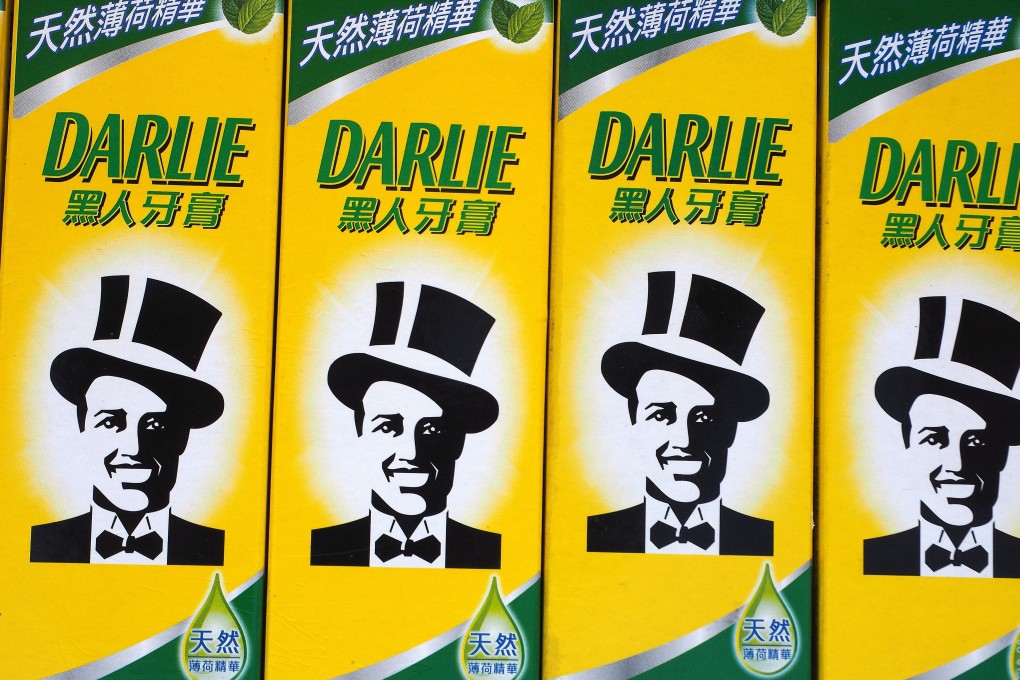Advertisement
Colgate reviews Chinese toothpaste brand Darlie amid US racism debate
- Darlie, one of the bestselling toothpaste brands in Asia, has its roots deeply embedded in blackface
- It is among a range of brands being reviewed in the US, where debates over racism have been sparked by the killing of Black American man George Floyd
Reading Time:3 minutes
Why you can trust SCMP

Colgate-Palmolive on Thursday said it was working to review and evolve its Chinese toothpaste brand, Darlie, the latest in a string of brand reassessments amid a US debate on racism and racial inequality.
Darlie is a Chinese brand owned by Colgate-Palmolive and its joint venture partner Hawley & Hazel.
“For more than 35 years, we have been working together to evolve the brand, including substantial changes to the name, logo and packaging,” a Colgate-Palmolive spokesman told Reuters in an email.
Advertisement
“We are currently working with our partner to review and further evolve all aspects of the brand, including the brand name,” he added.
Darlie is one of Asia’s bestselling toothpaste brands. Its package features a smiling man in a top hat.
Advertisement
Advertisement
Select Voice
Select Speed
1.00x